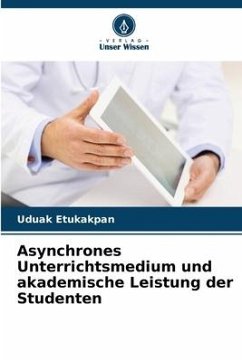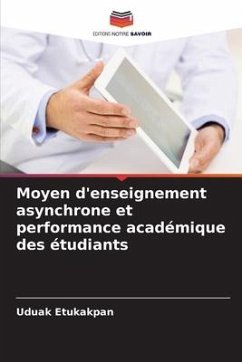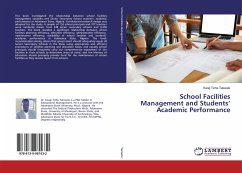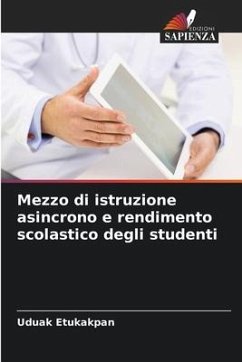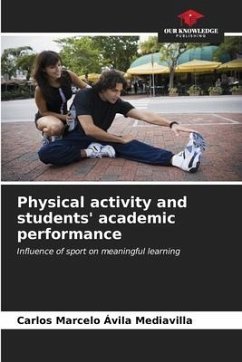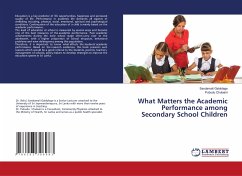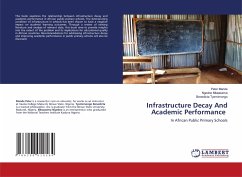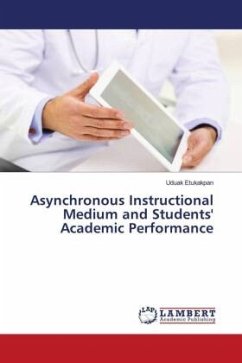
Asynchronous Instructional Medium and Students' Academic Performance
Versandkostenfrei!
Versandfertig in 6-10 Tagen
29,99 €
inkl. MwSt.

PAYBACK Punkte
15 °P sammeln!
This study investigated the effects of asynchronous instructional medium on academic performance of SS II physics students in Abak. 3 purposes, 3 questions and 3 hypotheses were formulated to guide the study. It adopted quasi-experimental design. A sample size of 100 respondents from a population of 670 SS II physics students was used. Facebook was used as asynchronous medium for the experimental group, the control group was taught with expository method. An instrument named Physics Performance Test was used for data collection. A reliability coefficient 0.85 was obtained. Mean and standard de...
This study investigated the effects of asynchronous instructional medium on academic performance of SS II physics students in Abak. 3 purposes, 3 questions and 3 hypotheses were formulated to guide the study. It adopted quasi-experimental design. A sample size of 100 respondents from a population of 670 SS II physics students was used. Facebook was used as asynchronous medium for the experimental group, the control group was taught with expository method. An instrument named Physics Performance Test was used for data collection. A reliability coefficient 0.85 was obtained. Mean and standard deviation were used in answering research questions while analysis of covariance was used in testing the hypotheses at 0.05 level of significance. Findings of the study indicated that academic performance of physics students taught with expository method is significantly better than those taught with asynchronous medium, female students exposed to asynchronous learning medium performed significantly better than their male counterpart and urban students exposed to asynchronous learning medium performed significantly better than their rural counterpart.



